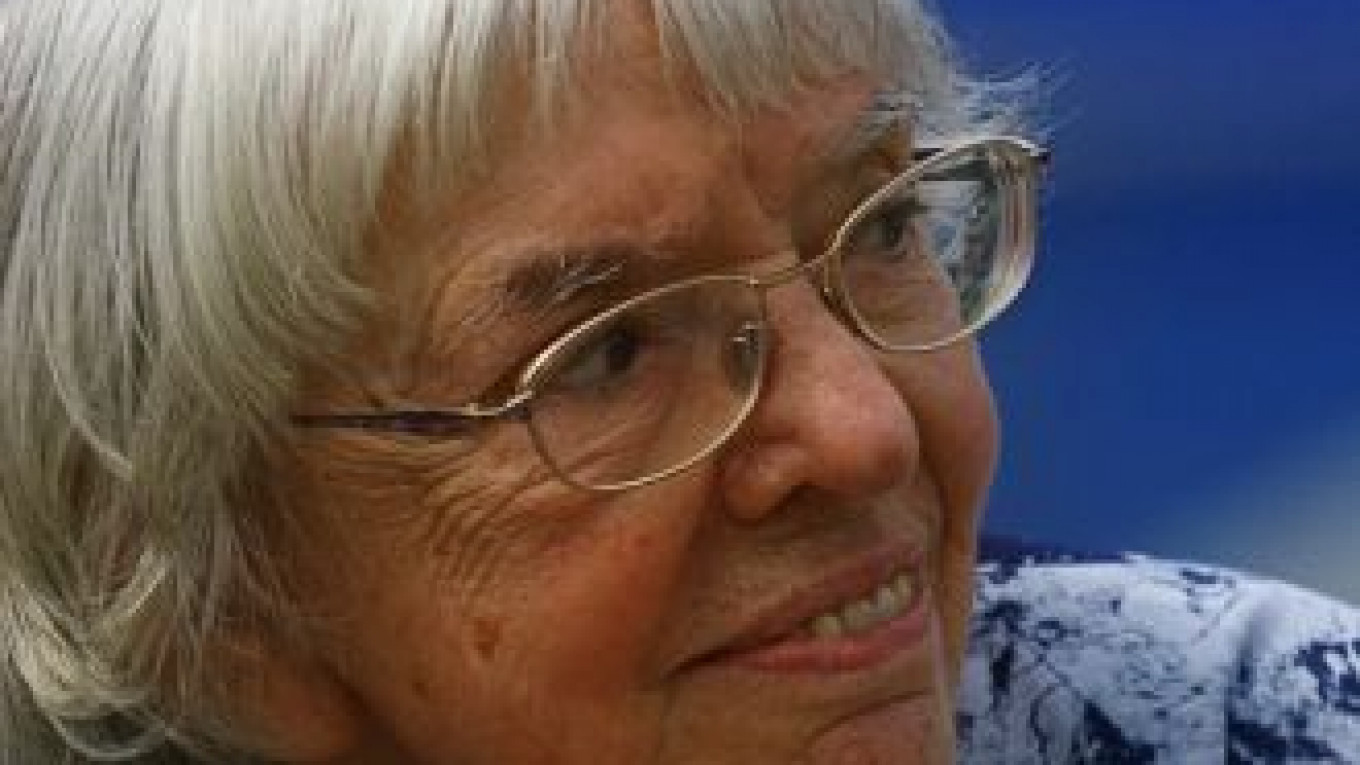The leaders of some of Russia's largest nongovernmental organizations raised their concerns about a Kremlin crackdown during a meeting Wednesday with U.S. Secretary of State John Kerry.
Kerry, who was wrapping up a two-day visit, met with the NGO representatives at Spaso House, the Moscow residence of U.S. Ambassador Michael McFaul, before flying to Rome later in the day, the State Department said.
“We spoke about the prosecution of NGOs,” veteran rights activist Lyudmila Alexeyeva told reporters as she left Spaso House with fellow veteran activist Lev Ponomaryov.
“He was impressed with our stories,” she said about Kerry, according to Interfax.
She said the meeting did not address the anti-Kremlin protests associated with Bolotnaya Ploshchad or the Magnitsky Act, which bars Russian officials implicated in human rights violations from traveling to the U.S.
NGOs have come under increasing pressure after the Justice Ministry ordered that hundreds be searched in recent weeks to check their compliance with a November law that requires those that receive funding from abroad and are engaged in political activity to register as "foreign agents."
Alexeyeva is among the NGO leaders who have refused to register under the law, which she and other critics see as a government attempt to smear the reputation of critical NGOs.
The deputy head of the Moscow office of Human Rights Watch, Tatyana Lokshina, said ahead of the meeting that she wanted to talk with Kerry about an overall crackdown on Russian civil society in the past year.
"The amendments to the legislation infringe fundamental rights," Lokshina told Interfax.
According to her, more than 250 NGOs have been checked and 30 were told to register as foreign agents or cease their political activity, including independent elections watchdog Golos.
Levada Center, the independent pollster, denied a report in Izvestia this week that said it too had been asked to register as a foreign agent.
The measures have outraged rights activists both in Russia and abroad. The Council of Europe's human rights commissioner, Nils Muiznieks, slammed the "foreign agents" law and voiced doubts about the need to conduct the searches during talks with Foreign Ministry Sergei Lavrov and Prosecutor General Yury Chaika last month.
He said at the time yhat he was particularly concerned with the law's wording, which he said could be interpreted to mean that all human rights activity was political.
In an interview published in Vedomosti on Wednesday, Muiznieks said the checks were paralyzing the work of the whole nonprofit sector. But Russian authorities, he said, were unlikely to react to his complaints.
Kerry's two-day visit to Moscow is his first to Russia after his appointment as the U.S. secretary of state in February. In addition to the meeting with civil society representatives, Kerry held wide-ranging talks with President Vladimir Putin and Foreign Minister Sergei Lavrov.
Related articles:
A Message from The Moscow Times:
Dear readers,
We are facing unprecedented challenges. Russia's Prosecutor General's Office has designated The Moscow Times as an "undesirable" organization, criminalizing our work and putting our staff at risk of prosecution. This follows our earlier unjust labeling as a "foreign agent."
These actions are direct attempts to silence independent journalism in Russia. The authorities claim our work "discredits the decisions of the Russian leadership." We see things differently: we strive to provide accurate, unbiased reporting on Russia.
We, the journalists of The Moscow Times, refuse to be silenced. But to continue our work, we need your help.
Your support, no matter how small, makes a world of difference. If you can, please support us monthly starting from just $2. It's quick to set up, and every contribution makes a significant impact.
By supporting The Moscow Times, you're defending open, independent journalism in the face of repression. Thank you for standing with us.
Remind me later.






